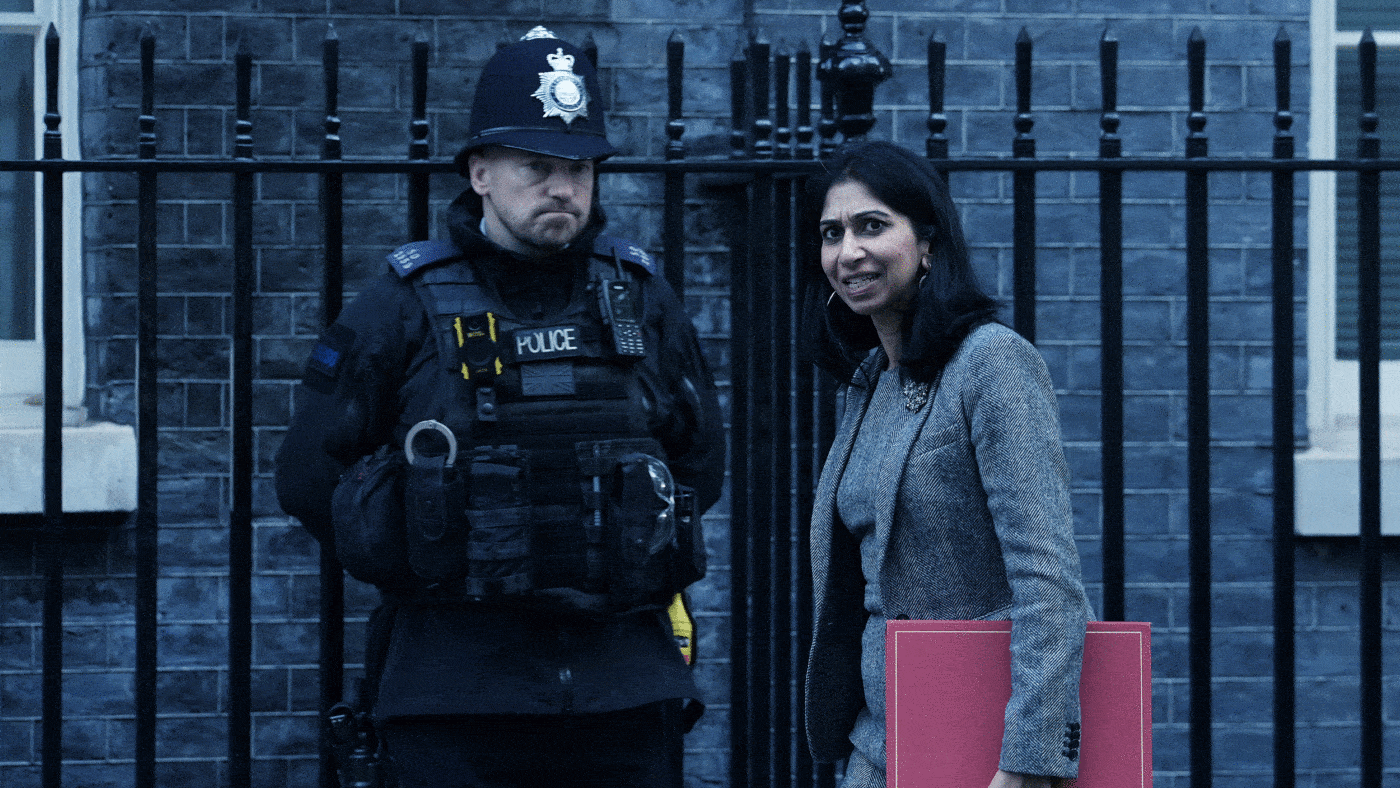When it comes to the row over Suella Braverman, which has dominated the first week of Rishi Sunak’s premiership, all is not what it seems.
It was originally about leaking, and the Home Secretary’s transmission of restricted documents using her personal email address. Yet the officials gunning for her over that are themselves leaking an awful lot of information to the press which is not obviously any less sensitive – and those papers demanding her resignation are cheerfully printing it.
Instead, many of the attacks now emanating from the Home Office focus less on process than on matters which seem straightforwardly political. We learn that officials don’t like her holding meetings with right-wing Conservative MPs, and that she has been commissioning policies which would see a more hard-line approach taken towards Channel crossings.
That makes it quite a complicated matter on which to choose a side, because it is simultaneously true that a) civil servants should absolutely not be allowed to drum out of office ministers whose policies they dislike and b) as Braverman has admitted, she has clearly made mistakes – which is why she resigned in the first place.
Of course, if one would defend the principle of political government against the insidious assaults of officialdom, one must fight that battle regardless of whether the minister concerned is a bold reformer or an uninspired tub-thumper.
But that bigger picture does risk obscuring the original allegations of misconduct that kicked the whole thing off, which do seem, on the face of it, rather trivial. What one Liberal Democrat MP referred to as ‘breaking the rules on an industrial scale’ turns out (unless Braverman is lying) to be this:
‘The letter also reveals that an internal Home Office review found Ms Braverman had sent government papers to her private email six other times times during her first stint as home secretary.
‘In all these instances, Ms Braverman said she had forwarded the information to her email account to enable her to read documents on her private phone, while taking part in meetings on her official phone.’
If true, that sounds less like anything really warranting the label of scandal – unlike the alleged conditions in the Manston centre, which are – and more like yet another case of government simply struggling to reconcile the practice of politics with the march of technology.
This is not a new problem. As Dominic Cummings pointed out when the Braverman story first broke, the use of private communications in government is fairly common. Why? In order to try and get around the Freedom of Information Act.
Now shifting communication outside secure government channels carries significant risks – the hacking of Liz Truss’s personal phone by Russian agents is a timely reminder of that. And there are doubtless staunch believers in freedom of information who believe any attempt to bypass it is nefarious.
But the FOIA was causing problems before the advent of personal smartphones and encrypted communications. In the New Labour era, it was one of the drivers of ‘sofa government’. Instead of properly-documented, on-the-record discussion, ministers and advisers took to discussing important policy either in person or on the telephone.
Ten years ago, Charles Moore gave a very good account of the problems this causes:
‘Because of the cant in which modern administrative documents are expressed, words like “openness” and “transparency” will be spattered over thousands of pages. But there will be no such openness or transparency. The big decisions will all have been made in whispers in a corridor, or abbreviated in a text message.’
As a biographer, Moore naturally focused on the devastating effect of Freedom of Information on the historical record. The inability to fully circulate and discuss documents in the confidence that they won’t be made public for decades has also likely had a deleterious impact on actual policymaking.
But even in 2012, he had cause to note that the drafters of the Act had given scant thought to the advent of email, and modern telecommunications have only continued to march relentlessly beyond the limits of the imaginations of well-meaning ministers in the late 1990s. The need for private discussion amongst ministers and politicians is as strong as ever – but the conduct of it is increasingly a security risk.
Yet this row highlights that many people don’t concede any such need, whether it be campaigners and journalists who demand government papers are open to immediate scrutiny, or officials who think ministers should be barred from discussing policy with backbench MPs.
Sunak won’t relish having a senior minister attracting so much flak so early in his premiership, but he should make a clear distinction between fair criticism and ideologically motivated attacks. Otherwise he risks setting a precedent that gives over-mighty officials more opportunities to try and restrict the proper conduct of political government.
Click here to subscribe to our daily briefing – the best pieces from CapX and across the web.
CapX depends on the generosity of its readers. If you value what we do, please consider making a donation.


